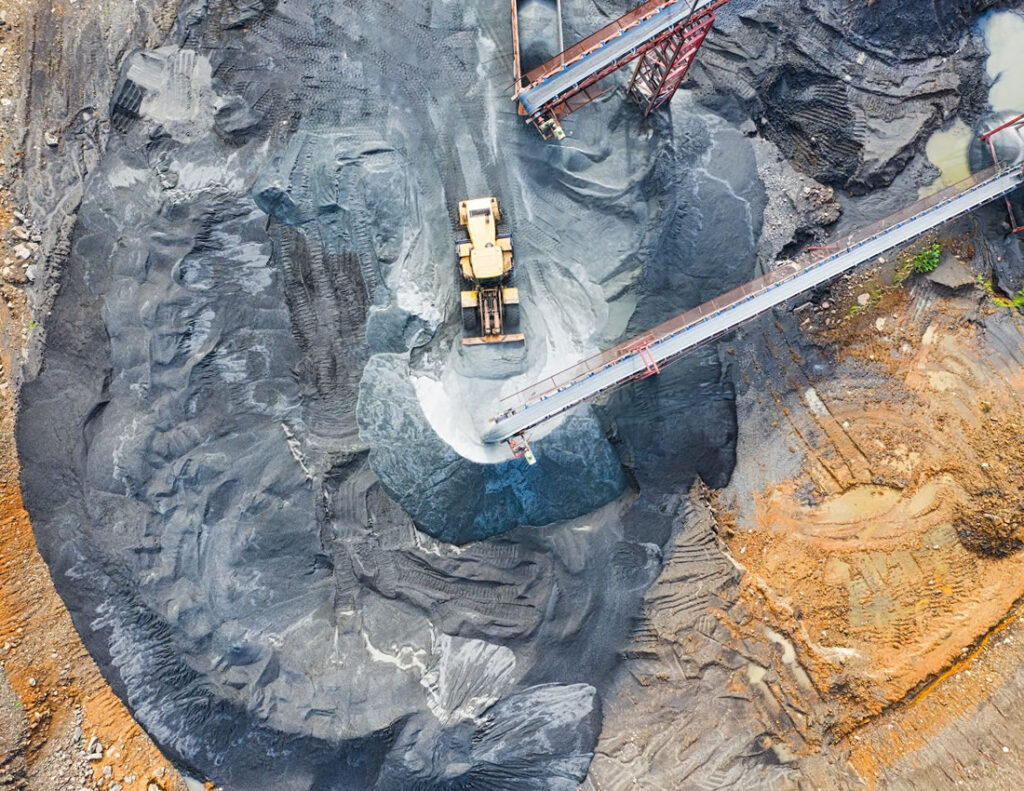Priority Industry Sector
Home > Priority Industry Sector
As an industry-sector player, AI-Group Inc.’s investment portfolio and programming focus on the following:
Agriculture Sector
For prosperous Africa’s sake, we prioritize people first before the continent. And the people require the urgency of a resilient, sustainable and environmentally secured agro-food chain to improve livelihoods and sanity. Our Agro sector project illustrates a wide range of modeling techniques, because we prioritize agriculture as a key socioeconomic sector and important driver for Africa’s growth, development and transformation.
For instance, there is an economic-experts’ consensus that Sub-Saharan Africa is geared towards agricultural land use as a primary driver of land-use change, and agriculture is a sector vulnerable to global environmental change. AI-Group flagship Project on “Africa Research and Development Network (ARDN)” demonstrates some key parameters for innovation and unlocking competitive Agro-industry sector edge on the continent.
Technology and Innovation
This represents a focal investment and key priority of the Group, helping to shape and coil a programming frame that is sustainable and supports an African wide public and private sector collaboration. Technological innovation project defines the processes AI-Group Inc. will lead constructive disruption and critically think for a bigger Pan-African Industry picture.
We are wired on the important journey to reap the benefits of Africa’s industrial revolution, using technology as a source of innovation to position Africa as a global brand and corporate giant. The emphasis is to increase market competitiveness, in order to place the continent for comparative and competitive advantages
Construction
The construction sector is a key priority in repositioning Africa as a global leader in the entire global value chain matrix.
The construction industry investment emphasis of AI-Group Inc. has an ambition to play an important role in Africa’s economic transformation, supporting industry base small and multinational companies to pursue the achievement of national socio-economic development goals; basically, to provide shelter, infrastructure and employment for Africa’s rising demography.
Engineering
Our Systems engineering is the flagship project involved in the coordination of the Group’s talented team of visionary engineers, with recurrent expertise in connected automation, higher product mix, megatrends, augmented reality, artificial intelligence, designed disruptive capabilities. These are prerequisite on-field segments of AI-Group Inc.’s engineering classification.
The mandate of our system-experts has always been to focus on the complexities of how projects should be managed and designed over its lifecycle for the overall benefits of an Industry-efficient and Factory-ready Africa.

Finance
Although we are not a Bank or Banking institution, that notwithstanding, considering how strategic a financially secured and independent Africa is in building an industrialized continent, we have made a major part of our workflow to entail and provide financial linkages between small businesses and Multinationals on the continent with support from financial institutions, to increase the continent’s competitive value chains.
The AI-Group Inc. believes that Africa will continue to be the loser insofar as it continues to export its raw materials and natural resources, without the urgency to address the huge challenge it is facing around finished good exports.
To bridge these gaps, the corporate agenda of AI-Group is to build more efficient corporate relationship, partnership and trust with relevant pan-African financial and corporate institutions along industry competitive edge, including state and non-state banking institutions.
We are reviewing and upgrading essential frameworks and Rules of Engagement with the financial sector, as a priority of our firm’s finance directorate; proving support and financial advisories to government and private sector institutions of the economy. These industries will include banks, investment, insurance and real estate firms.

Healthcare Resilience
We put Health, Wellbeing and Environmental Resilience as the core of AI-Group Inc.’s priority. Our Industry-based health-community approach has a critical role in the response to climate change; prioritizing Industry-related healthcare infrastructure investments is at the core of what we do. The emerging evidence and experience in this area suggest that to be fully effective, this requires a broad public health approach, including not only the preventive, therapeutic and curative functions that are under direct control of the formal health sector, but also appropriate leadership, guidance, project, infrastructures and regulatory oversights with regard to health-determining sectors and functions, such as water and sanitation, or disaster risk reduction.
Our ambition around Healthcare and Environmental resilience in Africa is to support small and medium to emerging multinational private sector forms to strengthen strong influence of social determinants on health vulnerabilities, overall progress in alleviation of poverty, reduction of inequities in the social and environmental determinants of health, and strengthening of basic public health interventions are critical to health protection from climate change. There is also a need for more specific efforts to adapt to changing climate through a continuing and iterative process of assessing health risks, identifying, prioritizing, and implementing adaptation options, and monitoring and evaluation. We seek to partner with public and private institutions to accelerate innovative solutions and disruptive infrastructure in this sector.
Infrastructure Sector
What inspired the establishment of the Group and the entrant of investors, has been the bigger scale of Industrialization centered on Infrastructure development. This altogether forms the key pillars that powers and accelerates economic transformation, drives progress and improve global value proposition across the African continent. These sectors also introduce the critical enabler for productivity and sustainable economic growth.
Overall, the investment in infrastructure accounts for over half of the recent improvement in economic growth in Africa and has the potential to achieve even more. The AI-Group Inc. key strategic priority is to intensify efforts in economic infrastructures; Transports, Energy, Water, Safety and Resilience, Financial, Health, Education, Standard and Rules, Technology, Environment, Critical, Digital, Hard, IT, Last Mile, Network, Public, Soft and Corporate Governance.

Insurance
As emerging leaders of Industrial Development on the continent, we are determined to lead; partner and support the insurance sector to enable companies to mobilize against challenging times. Through the Insurance Unit, we have created programmes that offer risk management in the form of insurance contracts. Our simple, yet basic concept of insurance is to provide advice and linkages between companies and Pan-African liberal insurance firms, with support and collaboration, acting as a one party, the insurer, to guarantee payment for an uncertain future event.
Manufacturing

First, our main focus is to coordinate innovations, technology and disruption of multiple Sectors in Africa. As a professional industry based specialist, we sponsor and support agglomeration of industries engaged in chemical, mechanical, or physical transformation of materials, substances, or components into consumer or industrial goods, hinged on what the African single Market (AfCFTA) promises.
Our second most important engagement is on manufacturing processes, which comprises steps through which raw materials are transformed into final products for clean, standardized, quality and assured African market that the AfCFTA provides. AI-Group Inc. developed connected automation consists of a process that begins with the creation of the materials from which the design is made.
These materials are then modified through manufacturing processes, value addition to value chains where it is finally consumed. All these form the requisite part of the manufacturing architecture.
Mining

It is important that current and potential investors in this sector understand the applicable compliance, regulatory and fiscal considerations. Adopting an informed investment and operating strategy is key to building a sustainable and profitable business as well as a conducive Mineral Exchange Platform for the continent.
As a multiple industry set-up helping local, multinationals and investors navigate sectors, AI-Group Inc. was established to invest, guide and gauge corporate enterprise to access key industry sectors in four priority mining methods; underground, open surface (pit), placer, and in-situ mining. These we do on the following premises:
- Underground mines are more expensive and are often used to reach deeper deposits.
- Surface mines are typically used for more shallow and less valuable deposits.
- Placer mining is used to sift out valuable metals from sediments in river channels, beach sands, or other environments.
- In-situ mining, which is primarily used in mining uranium, involves dissolving the mineral resource in place then processing it at the surface without moving rock from the ground.
Steel
The Steel Industry will continue to serve as a stimulus to national development and economic boosters to industrial development of Africa.
The Steel industry serves as the backbone of industrialization in Africa, not just in building vast railway or heavy-duty assets, if all the necessary parameters are put in place. The benefits of having a functional steel industry are projected to translate to a functional continent.
Our priority as a company is to support the steel industry value chains, which are designed through our automated disruptions, estimated to contribute to all the facets of Africa’s economy, including the important role steel plays in economic development and growth.
Steel making requires iron ore, coking coal and limestone as input ingredients, out of which Africa is self-sustaining in iron ore and limestone whereas a large part of the coking coal requirement of the domestic steel industry is being met through import. This is where the Group, through private sector action and collaboration with public and private sector institutions is determined to change the narrative.
Telecommunication

As we try to assess the impact of telecommunications penetration on peoples’ living standards in Africa through their impact on per capita income growth, we are bent on improving environmental resilience that inspires efficient and clean communication bandwidths.
Our decision to invest in telecommunication business, including research and development, was motivated by the curiosity to find out if the telecommunications growth being experienced by African countries translates into economic growth through its impact on people’s living standards.
Automobile
The Africa Industrialization Group Inc. has burning desires to revolutionize the automotive industry in Africa, where our automotive and automobile department, headed by a Logistic Infrastructure management executive is positioned to provide innovative and technologically driven services to 80% of the Fortune 500 automotive companies. Hence, whilst Africa’s automotive market is still underdeveloped; AI-Group Inc. recognizes the potential of the automotive industry in Africa and foresees room for growth across the automotive value chain including vehicle sales, aftersales, vehicle assembly and direct production.
The global automotive industry is looking for new growth opportunities and those opportunities resides in Africa. What we do as a firm is to bridge the gap and lead Africa’s infrastructure corporate business, committed towards establishing and moderating the activities of ‘Made In Africa’ Automobile hub on the continent.
Africa, being a promising and resource buoyant continent, with an emerging economy that is progressing fast and by far one of the most populated continents, presents huge opportunities for Pan-African investors in the automotive space.
AI-Group Inc. “Made in Africa” project, presents a new auto industry plan which has an ambition to raise import duties on imported cars, and is designed to advocate a local consumption value chain making the imported used car market less attractive. While this encourages the setting up of assembly plants in the country to serve the domestic market, we promise to become an automobile linkage hub in Africa.
Textile

Challenges which have supported the rise of the fast fashion industry on textile value chains, has brought in an unprecedented boom in the trade of second-hand clothing.
We are taken aback, as millions of people globally donate clothes with the understanding that they will support the needy, thus increasing imports into Africa from developed countries consistent with contemporary agenda of African economies, which is to industrialize and add value, rather than to consume.
We are committed to providing innovation, partnership and leadership in the African Textile Value Chain, overall.
Transport and Logistics

Given the significance of the impact of logistics infrastructure on trade and economic development in Africa, AI-Group Inc. is committed to invest and support the overall investment in freight logistics and supply chain activities with a view to identifying the key prospects for development of trade, conducting businesses, and accelerated industrialization and infrastructure movements in Africa.
The Group is committed to eliminating structural inadequacy in infrastructural facilities, lack of continent-wide regulatory framework, the absence of political will and a limited application of technology. And to a great extent, we will be supporting innovative and disruptive factors to the development of logistics infrastructure in Africa.
Agribusiness
The patterns of global trade in food are changing fast. In recent years even China, long admired for its determined pursuit of self-sufficiency in food, has become a net importer of maize.
For better and for worse, globalized commercial agriculture is coming to Africa. The reflex response has often been to bemoan the ‘land grab’ by multinational food groups and investors from Asian and Arab states, when a more practical reaction would be to devise strategies for more African participation in a burgeoning international food trade.
External demand brings the prospect of economic growth and improved rural incomes. Agriculture must be Africa’s answer to globalization – for large industrial farms and smallholders alike.
Whether or not this can be achieved is, above all, a matter of making the right decisions in government and for business.
First, policymakers must separate agricultural ambitions and investment – cleanly and unambiguously – from other measures to reduce poverty among rural populations in Africa. Both are absolutely necessary, but the rhetoric of agricultural self-sufficiency is a recipe for confusion.
Food security is not the same as self-sufficiency among smallholders. These are distinct ideas, but routinely conflated. For example, although Dubai is a desert, its wealth ensures a stable supply of imported food. In Africa, food security is contingent on greater economic efficiency, especially in agriculture.
Africa needs food security, not self-sufficiency in food. Global demand for food is a strategic opportunity to re-balance the iniquities of world trade in Africa’s favor. While policymakers are surely correct to expect that rural populations should benefit from agricultural growth, the pursuit of self-sufficiency is not an effective tool to reduce poverty. Until agriculture is commercially viable, there will always be hunger in Africa.
The global trade in agriculture is both an opportunity and a threat. For Africa to maximize the benefits and minimize the risks, the overriding priority is to improve skills and know-how. The prospects for African agriculture hinge on producing crops which others want to buy. The most productive investment will be in locations where farmers, large and small, are able to integrate their systems in response to market demand. Where the efficiency and low costs of smallholders can be combined with the market access and quality controls of large holders and exporters, Africa’s farmers can create a dynamic and market-led industry. For policymakers, the key working principle is to remember that the root of poverty is lack of money– not a lack of food.
Chemical Industry

Africa’s chemical industry is undergoing dynamic change, with a range of external factors presenting industry executives with vastly divergent challenges. As such, running a global chemical company has never presented so many opportunities and challenges. The following are 5 strategic platforms for development:
- Capture growth from emerging markets – increase the pace of developing emerging market footprints to capture long-term growth and the emerging customer base. There is a need to be creative and look beyond China. A portfolio approach to capture the benefits and offset the risks inherent in different markets comes from balancing geographic expansion.
- Optimize the portfolio – take a more disciplined approach to identifying business units and segments which will not be competitive in the long-term; or which do not fit with the wider business strategy. In particular, remove the history and sentiment attached to legacy businesses, which often results in chemical companies holding onto areas which are no longer optimal in terms of maximizing shareholder value or no longer fit the strategy.
- Build financial strength – many of the good things the industry was doing in 2008 onwards have stopped. Supply chains have become bloated, buffers have been built in inventory and discipline around receivables collection has weakened.
- Reduce business model complexity – build leaner, more efficient business models which are more readily able to adapt to change. The chemical industry has become proficient at building structure and process and heavily integrating these structures resulting in reduced flexibility – adding layers of costs and functions which confuse the picture of underlying business performance, making it difficult for management to make optimal decisions and subsequently, make it difficult to deliver change.
- Focus innovation to drive price and margin – among the wider manufacturing industry, the chemical industry is a clear leader when it comes to customer centric innovation and new product development. For established market companies, we don’t intend to offer anything new here – just a reminder to continue to focus on this as a core competency for long-term success. For emerging market companies, the pace of development of specialty chemical business units has been slow, such that many are now no closer to the heralded move downstream than they were five years ago, while opportunities continue to pass them by. Basic chemistry is much maligned but as part of a fundamental GDP building block it offers a platform to foster development.
Each of these is based around an existing chemical industry core competency, but there is a clear need for renewed focus and increased pace of change. It is not enough to do one or two of these well. A successful strategy in today’s world requires all aspects to be performed equally well, at the same time, often at different paces in different regions of the world. The time for change is now. In our view, those who wait and react will fall behind those who embrace the changing dynamics.
Engineering and Critical Infrastructure

Made in China is a stamp that is ubiquitous and can be found on a wide range of objects – anything from T-shirts and shoes, to watches and televisions – worldwide. But it is rare to find an object which has a mark that points to origins in an African country – “Made in Nigeria” or “Made in Chad”, for example.
Despite experiencing regional economic growth in recent years, Africa commands a meager 1.5% share of the world’s total manufacturing output, according to the United Nations Industrial Development Organization. We need to transform Africa’s manufacturing into a truly high-tech sector. Africa has been too heavily focused on ‘sub-optimal scale manufacturing’ – the kind that can only exist behind a high tariff wall, and which can only really serve a domestic market. Instead, we need ‘advanced manufacturing’ strategies that AI-Group seeks to expedite in partnership with institutions, which takes raw inputs, combines them with intellectual capability, and adds value to create a functionality the world needs. Advanced manufacturing is the work of next-generation industries, where there is enormous demand and enormous profit to be made.
Priority areas for creating an enabling environment for advanced manufacturing include:
- Energy: Manufacturing requires access to reliable, efficient and cost-effective energy supplies. Many African countries have significantly expanded their energy generation, transmission and distribution infrastructure with a focus on renewable energy sources like geothermal and wind. Continued capacity improvements, enabled by a more aggressive and prioritized infrastructure development strategy, will be critical in meeting the energy needs of an expanded economy.
- Trade: Since manufacturing relies on global markets, access to those markets is an important strategy in the trade architecture on the continent. Trade facilitation is also a major component; this will involve – working with companies to leverage new technology solutions to meet policy goals, anti-corruption efforts and efficient customs processing while promoting access to input materials for further manufacturing, job creation and product development in Africa for Africa. Enabling market access by reducing tariff and non-tariff barriers enables countries to benefit from both innovative new products, such as environmental technologies, that can solve local challenges, as well as access to key inputs that can grow necessary markets (for example, chemical products that contribute to more energy-efficient building materials).
- Public-Private Partnerships (PPPs): Improving the business environment requires us to build genuine partnerships between the public sector and the private. This idea of public-private partnerships is critical to every other priority mentioned. We should be working with, not against, each other to create a strong, sustainable framework for growth. This is a common thread running through countries that are succeeding in the global economy.
- Inclusion and Diversity: Diversity is being asked to the party, inclusion is being asked to dance! Whether economic, societal, cultural or gender, inclusion and diversity is an area where clear-sighted policies can lead to sustainable economic growth, helping Africa to deliver a balanced and sustainable development. This can also be a source of innovation.
- Sustainability: The world needs solutions for big challenges like energy, climate change, water, food, nature and social issues. Africa’s population is projected to hit 2.4 billion by 2050, putting pressure on resources. Circular business models will ensure optimal utilization of available resources and enhanced productivity across the value chain.
Healthcare System
As a new company, AI-Group Inc. is offering medical professionals’ opportunity to recognize and diagnose diseases more efficiently through its research and development platforms and consulting services, which serves to provide treatments that are more effective to patients on the continent with an ambition of world class healthcare infrastructure.
Our investment in Artificial Intelligence will seek to provide the promise of insight and hope for medicine on the continent, in that it offers alternative solutions to communities where trained doctors and resources are scarce. There is no denying that AI, as the driving force behind the Fourth Industrial Revolution, will have a positive impact on the future of medicine, especially in developing world settings, where resources are scarce. But the excitement around AI must be balanced with broader ethical, legal and social concerns when its use in medicine is contemplated – and our R & D ambition will respond to this commitment.

